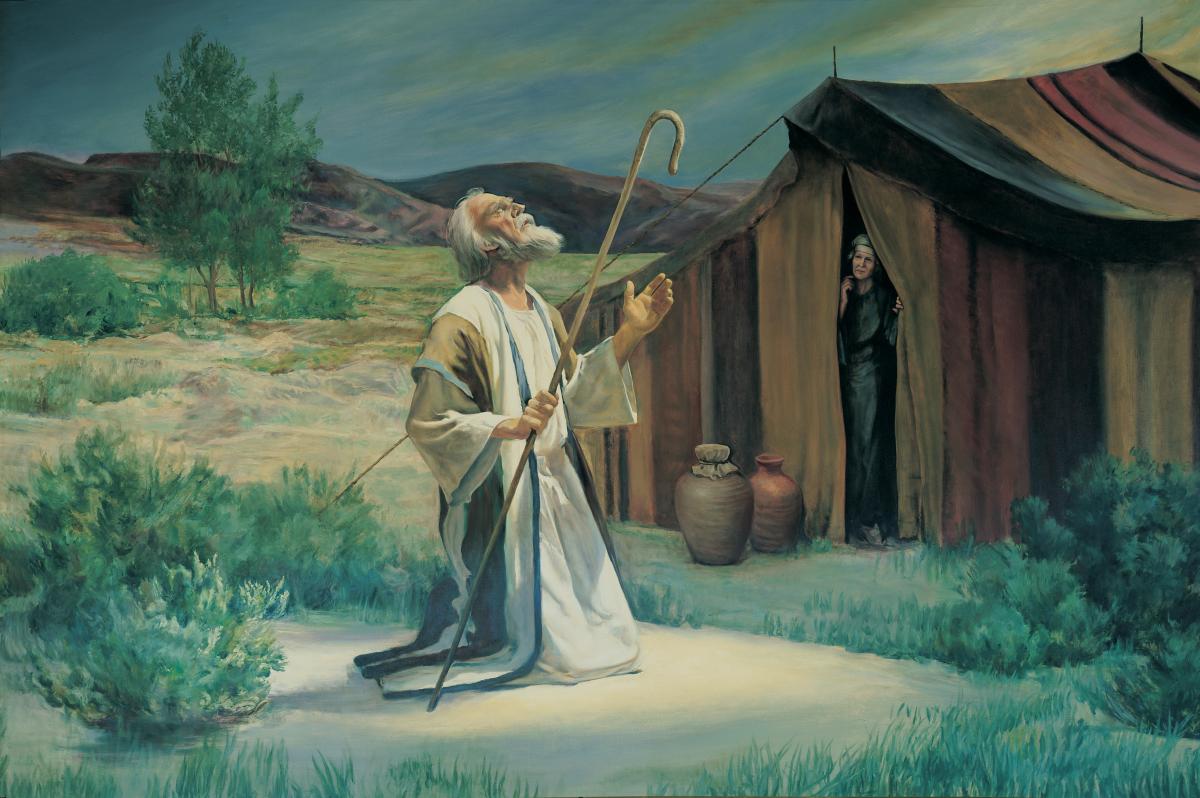|
Genesis 17:3-9 (NRSVCE) Then Abram fell on his face; and God said to him, “As for me, this is my covenant with you: You shall be the ancestor of a multitude of nations. No longer shall your name be Abram, but your name shall be Abraham; for I have made you the ancestor of a multitude of nations. I will make you exceedingly fruitful; and I will make nations of you, and kings shall come from you. I will establish my covenant between me and you, and your offspring after you throughout their generations, for an everlasting covenant, to be God to you and to your offspring after you. And I will give to you, and to your offspring after you, the land where you are now an alien, all the land of Canaan, for a perpetual holding; and I will be their God.” God said to Abraham, “As for you, you shall keep my covenant, you and your offspring after you throughout their generations. Something interesting happens when God establishes His covenant with Abram: He gives Abram a new name. From that moment forward, Abram became known as Abraham. We see this pattern repeated throughout Scripture. Sarai receives her new name, Sarah. Jacob receives his new name, Israel. Simon receives his new name, Peter. Today we often think of names as just something we call ourselves, and nothing much more than that. We often even resort to nicknames, because “names” don’t matter so much so long as you are effectively identifying the person you are referring to. I don’t call my dad by his name, because when I say “my dad” everyone still knows who I am talking about. But in the Bible, names are much more than mere indications of a referent. Names mean something.
When God establishes the covenant with Abram, he renames him to Abraham, meaning “father of many.” This isn’t just foreshadowing what God has in store for Abram, it is establishing in that very moment an entirely new identity for “this person, once known as Abram.” So too with Simon, who gets renamed to Peter, which means “rock.” It’s not Jesus just looking to make a pun. Peter becomes his new identity. He is no longer the fisherman. He is now the rock upon which the Church is built. Simon’s relationship with God, and Abram’s, and Sarai’s, all resulted in an entirely new identity. And to an extent this is true for us all. Think of it this way: God is the source and destination of all creation. Everything comes from God, and to God everything ought to return, for God is the very One who sustains all that exists. Anything that “is” is only because of its relation to God. Without that relation, there is no “is.” There is no you, no me, no anything. And the closer you become in relationship to the source of “you,” the more you begin to become who “you” is meant to be. By God’s grace, you become more “you” than you have ever been before, absent the sin that holds you in bondage and absent the passions that keep you enslaved to your desires. In God we find our true purpose, our true identity. God looks upon each and every one of us and says “you,” and thus we realize that we are an “I.” That’s a very heady way of saying that God enables us not merely to realize our potential, but to literally become ourselves in the fullest sense. That’s what the new names in the Bible are showing us. That is what happened with Abram, and with Sarai, and with Simon. In God they found a new identity. In God they discovered their true purpose, their true calling. And it is from God that they received their name. God looked upon Abram and said “Abraham.” God looked upon Sarai and said “Sarah.” God looked upon Simon and said “Peter.” God looks upon every one of us, and says “you.” |
ArchivesCategories
All
|

 RSS Feed
RSS Feed